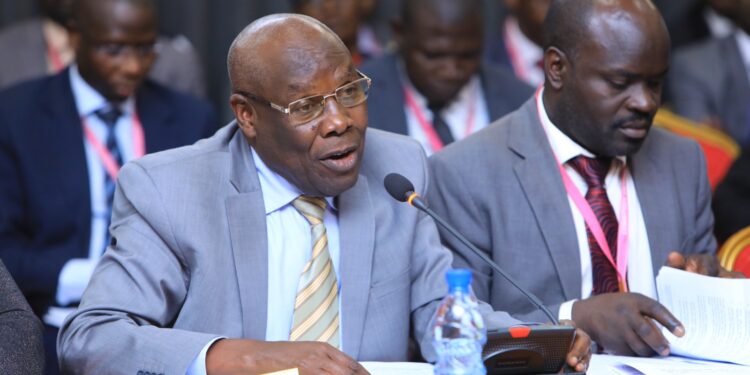Uganda is accelerating its push toward nuclear energy, positioning it as a crucial component in the country’s drive for sustainable development.
In his address to the 68th General Conference of the International Atomic Energy Agency (IAEA), Sidronius Okasai Opolot, Minister of State for Energy, outlined Uganda’s ambitions for nuclear power as part of its energy mix.
In his speech, the minister highlighted the country’s commitment to tackling climate change, improving energy security, and advancing socio-economic development through nuclear technology.
“Net Zero Carbon Emissions cannot be fully realized without increasing the share of nuclear power in the electricity generation mix,” Hon. Okasai noted, underscoring the role nuclear energy will play in Uganda’s energy transition.
To this end, the country has moved to Phase Two of the IAEA’s Milestones Approach, focusing on the construction of Uganda’s first nuclear power plant and building the necessary infrastructure.
This includes establishing a Center for Nuclear Science and Technology at Soroti University, which will host a research reactor to drive innovation, education, and applied research in the field.
Uganda’s journey toward nuclear power began in 2008 with the passing of the Atomic Energy Act, providing the legal framework for the country’s nuclear ambitions. Over the years, Uganda has worked closely with international bodies such as the IAEA to develop its nuclear sector responsibly.
This partnership has been instrumental in ensuring that Uganda’s nuclear activities prioritize safety, security, and the peaceful use of atomic energy.
“As Uganda continues to explore its uranium potential and the vast opportunities in nuclear applications, we are committed to strengthening national infrastructure for nuclear Safety, Security, and Safeguards,” Hon. Okasai emphasized. He praised the IAEA’s role in ensuring that peaceful nuclear pursuits do not lead to nuclear terrorism or weapons proliferation, a key concern in the international community.
Alignment with Global Climate Goals
Uganda’s pursuit of nuclear power is deeply intertwined with its climate and environmental goals. As a signatory to various international agreements, including the Paris Agreement, Uganda has committed to reducing carbon emissions and boosting renewable energy sources.
Hon. Okasai expressed confidence that Uganda’s commitment to nuclear energy will be reaffirmed at global summits like COP29 in Baku, Azerbaijan.
“Nuclear power is a significant part of our energy transition plan and plays a vital role in achieving our climate targets,” he stated. The minister noted that the development of nuclear power in Uganda aligns with the broader goal of achieving a zero-carbon future, contributing to both climate change mitigation and energy security.
Hon. Okasai concluded by reiterating Uganda’s strong support for the IAEA’s mandate and its vision to harness nuclear technology not only for energy production but also for improving health, food security, and environmental protection.
Uganda has already made strides in using nuclear technology in health, with the Uganda Cancer Institute recognized as a Centre of Excellence for Oncology in the East African Community.
As Uganda embarks on the next phase of its nuclear journey, it remains committed to a balanced approach that addresses the country’s energy needs while fostering sustainable growth.
Nuclear energy will play a pivotal role in transforming Uganda’s energy sector, providing reliable electricity, supporting industrialization, and contributing to the global fight against climate change. The future of Uganda’s nuclear energy ambitions looks bright, as the country positions itself as a leader in the peaceful use of atomic energy in Africa.
Do you have a story in your community or an opinion to share with us: Email us at editorial@watchdoguganda.com













